
Juan Manuel “Rifle” Varela received Infobae at the offices of his production company in Palermo. Currently, during the week his alarm clock rings at 3:30 to conduct the newscast + tomorrow, from 6 to 9, on La Nación+.
Although his beginnings were as a sports journalist, today he is where he always wanted to be: hosting a news program. However, when it comes to giving the news, he chooses not to comment, since he feels that it is not his function. He is convinced that his morning viewers need a journalist to accompany them, not someone to yell at them or tell them what is right and what is wrong.
When talking about current affairs, he was critical of the Government and assured that society is also responsible for the current situation. He also said that the most serious aspect of Alberto Fernández's situation is that “even his own don't trust him.”
“To begin with, do you tell us why they call it Rifle?”
—I entered TN as an intern, a three-month contract, and since nobody knew my name, Nico Singer, a colleague who is still working in TN today, who gave everyone nicknames, gave me Rifle because of my appearance, because of what I am like. That's how everyone started calling me Rifle. Afterwards, the internship dragged on, and I was still Rifle.
I remember that when I started to appear on camera many drivers called me Rifle, although the bosses didn't want them to call me that way on air, but everyone called me Rifle, because nobody knew my name was Juan Manuel. I remember one day that Fernando Carnota, before introducing me, was sitting next to me and he said to me: “Che, I know you as Rifle, what is your name?” In fact, the only one Juan Manuel told me, and Juan Manuel keeps telling me, is Nelson Castro and now, in La Nación +, Gustavo Carabajal.
He said he started out as an intern. How did your first work in the media come about?
—I studied at the Catholic University and since I had to do an internship, I had the possibility of entering TN in sports, because they had an agreement with Artear, and then they ended up being 16 years old.
- Was sport your specialty?
—At the age of 11 that one day I said “I'm going to be a sports journalist” and since then my focus has never changed. At no time did I doubt what I wanted to study. I always liked sports, but from the age of 11, from a job that a teacher asked for, I never changed my mind again.
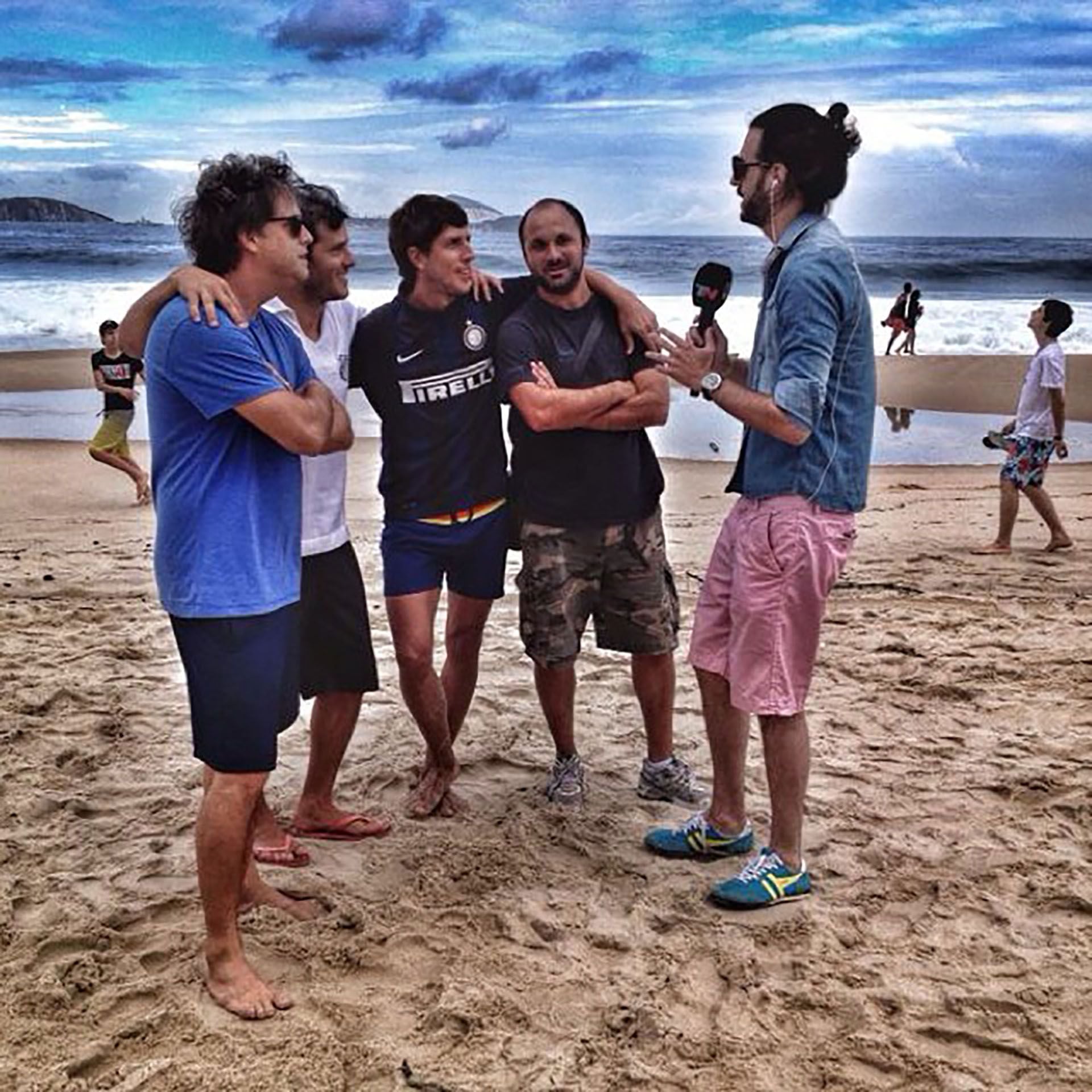
— How did your family make the forceful decision that you wanted to be a sports journalist?
“What I'm going to tell now I only told once. I don't think my mom ever found out. When I said I was going to be a sports journalist, I was in the fifth year of school. One day I heard my mother talking on the phone with someone, who I never knew who I was, who asked her what I was going to do with my life and my old lady told her that I wanted to be a sports journalist, but that she didn't see me because I was very shy, very quiet, but that good, that I wanted that and that they were going to accompany me: “If you want to be a journalist sports that I study,” he said. And I was really right, because I am shy in my private life, I am very quiet, I am very quiet, I am shy.
- Is he as shy as his mother describes him?
— 100%. I never discussed this with my old lady. Now, because it's a note to Infobae, he's going to find out. I think my mom shouldn't even remember that situation, because she never knew that I heard that conversation, since she was in her room, the door was locked. The typical fear of mother, but at no time did I have anger or indignation, in fact, that situation makes me funny. But, as I always say, for me when the red light comes on, I change. It's part of my job, my concentration, I prepare for that every day. And there are many times when I do things that in everyday life I wouldn't do, but that I do in front of the camera.
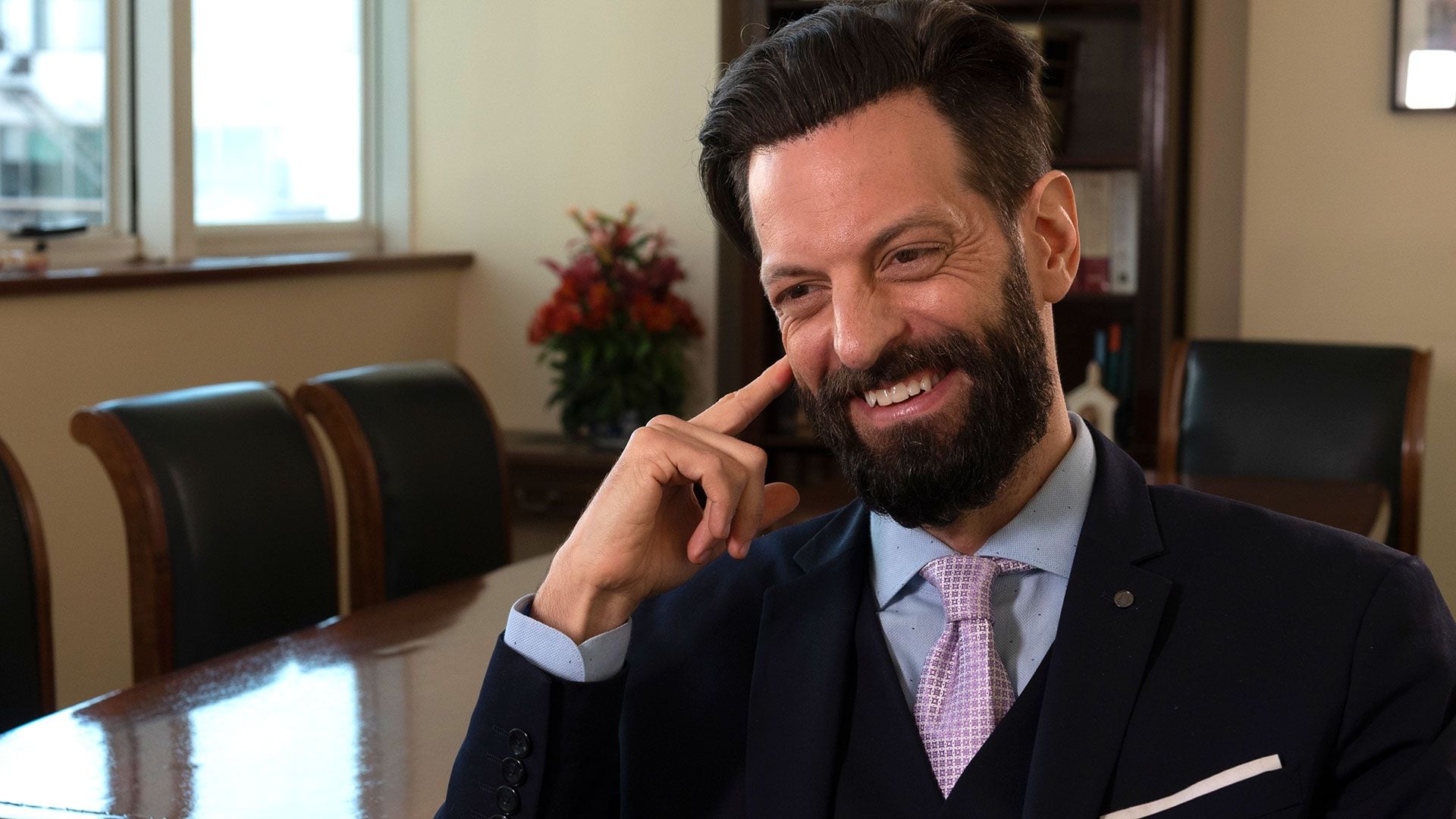
— Do you remember what your first time was like in front of a camera?
“Yes, 100%. It was a Saturday, there was no one from sports, the only one was me, because I was like the head of production, I was in charge of the program and I was playing Manchester United against Blackburn Rovers, and Manchester were fighting the Premiere League against Chelsea. He scored a goal about the hour Carlitos Tévez, then, at that moment the boss calls on the phone and asks that one last news be made with Tevez's goal, because it was the last dates, and at that time C5N was growing, but they tell him in the editorial office that there was no one from sports, that there was only me and he said: “Well, let the Rifle go up”. And I remember that the producer of that moment, Agustina Muda, came and told me that I had to go on the air. I remember that I had been on vacation in Montevideo for four days and I was unshaven, wearing comfortable clothes, I told her: “Look, if I go on camera like that they throw you, me and the director”, but she told me that the important thing was that Tévez's goal comes out.
So, I said, “If you want me to air for the next hour, I shave and go on the air.” And I remember I did that. I shaved in the canal bathroom, stole a shirt from Marcelo Fiasche, which he had there in the office. I put on my shirt and made the same exit I had recorded, but on the air. And then the next hour they asked me to go out with the same thing and the next hour they said to me: “Do you have anything to go out with?” and that's where it all started. I continued at night, at midnight, and then they moved me to TN Central as well...
“One day it was news because he surprisingly resigned from the house that gave him the first chance, which saw him grow up. Tell us the reason for that decision and, especially, what is it like to produce the “farewell operation”? Because you have to feel it, think about it, do it and communicate it.
“Yes. I left on December 1, 2017 and many people still ask me the same question and invent things, or when I tell the truth they don't believe it to me.
I felt like I had to jump, that I needed something else. That there was going to come a time when I wasn't going to be comfortable, that I wasn't going to be happy. That I needed to risk. I felt like I was going to be 60 years old and that I was going to be in the same place. At first, I started to feel that, but I didn't know if it was a genuine question, ego, anger... So, I started talking about it, doing therapy, to see if that feeling was true, if I felt it, if I really wanted to leave.
Some situations happened to me, for example, to open the closet to change and go to the channel and not know what to wear. And that's when I think the signs started that I had to leave. Or some situations where I did something and they didn't give me back, so I said: “Why am I here if I don't know if I'm doing things right or wrong?” And when I became convinced that my thing was genuine, that I wanted to jump, but I didn't encourage myself to go to the office to quit, I had a lock that didn't allow me to go. And I remember that I worked in therapy that, that moment of leaving.
I made the click when Argentina qualified for the World Cup for Russia at the last minute, with Messi's goals in Ecuador; I already knew I was going to the World Cup next year regardless of whether Argentina qualified or not, but since I qualified they told me that I was going to go to the World Cup draw, I had never gone to one, and that's how they put me between the sword and the wall, and internally I knew that I was not going to go on the channel to the World Cup, because I was going to resign. I thought it was a bit disloyal. And then I got my strength, I went, I knocked on the door, it was open, I sat down...
- Who was your boss?
—Richard Ravanelli. When I came in, I was there with the computer, and I sat down and said, “I'm leaving.” I don't remember the talk exactly, but he was surprised and I told him I wasn't happy, that I wanted to do well. And he said, “But you're going to the World Cup draw.” I told him that's exactly why I thought it was wrong to stay, that someone had to go to the channel because that was going to serve him a lot as an experience. And he thanked me for that gesture, he told me that he wanted me to go well from the channel.
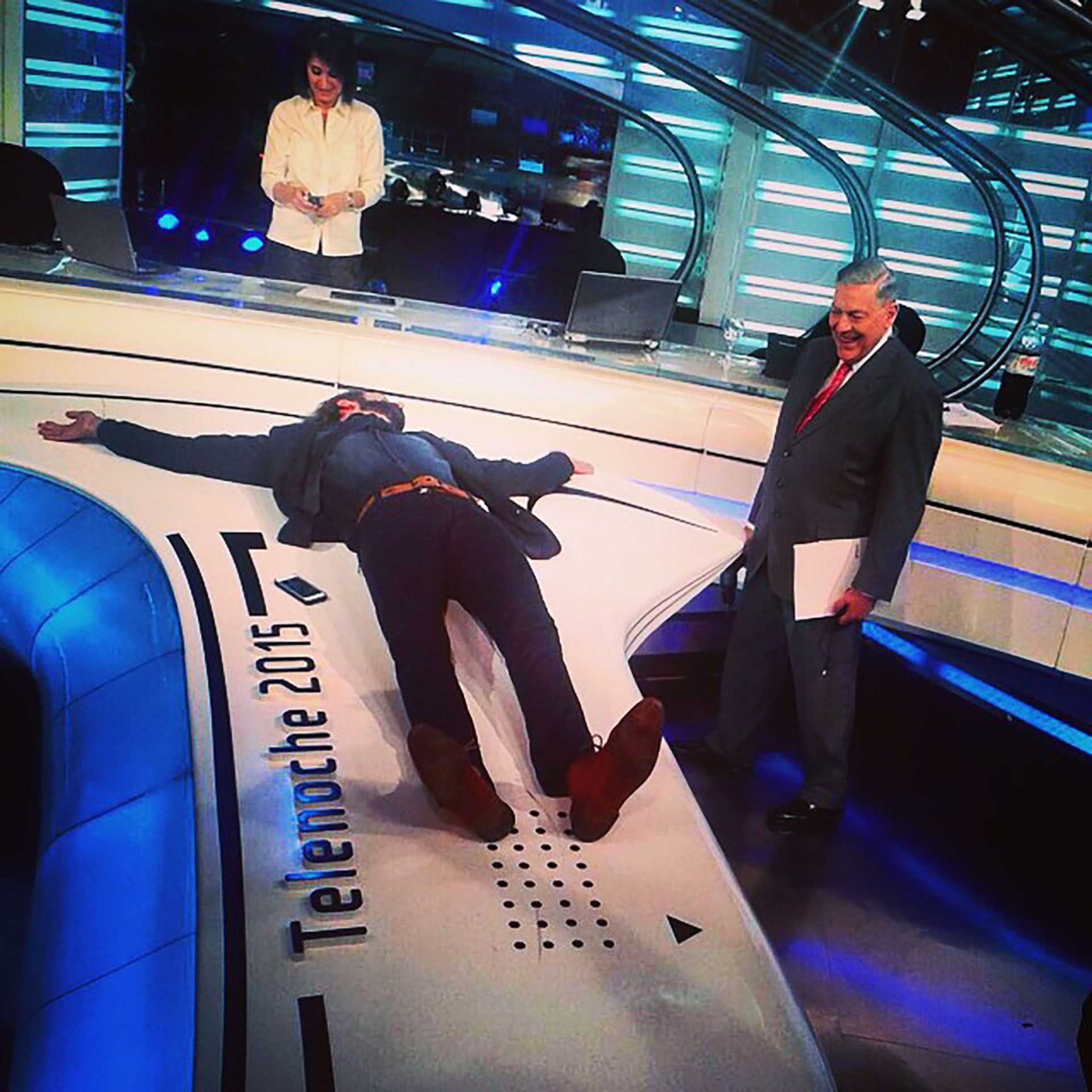
—When you left Channel 13, how was the transition to La Nación+? How was the anxieties handled? What was it like to be “vacated”?
—In 2018 I worked on Public Television making documentaries. In 2019 I made The Headlines, also on Public Television. He was still working on radio. In 2018 and early 2019 on Radio Rivadavia. In TN, in some circumstances, one summer I had to replace Nelson Castro. And I knew that at some point I was going to have to host a newscast. And what's more, when I was in TN I had a meeting with Juan Cruz Ávila for A24, we were close there.
Then, when I left TN I was about to go to A24 as well and it didn't arrive. In addition, I had an offer of a news channel to make the first morning and then the possibility of La Nación + came up. When Juan Cruz Ávila called me, I didn't hesitate because it was the person I wanted to work with, he is a person who is going forward and I felt that I could learn a lot from him and I could improve in my career, empower it. And that's why I'm in La Nación +.
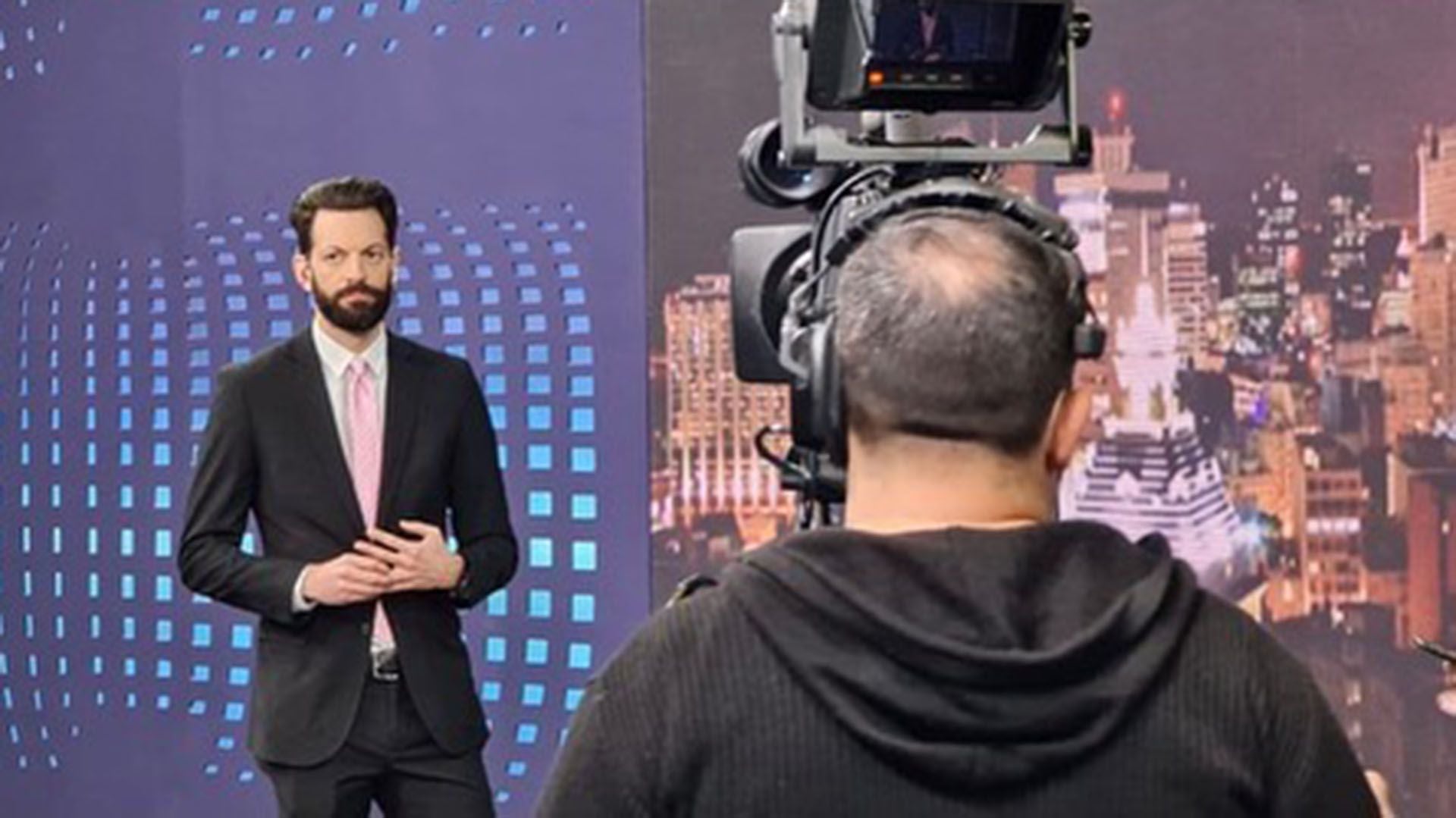
“Are you in the place you want to be today?
“No. But I'm happy. I really enjoy what I do. The alarm clock goes off at half past three in the morning because I want to. At first, when the alarm clock went off, I opened my eyes, looked at the ceiling and said, “who told me to do this?” That feeling is over. I tie my tie and it's magical. I get to the changed channel, there they only make me up and do my hair, and I transform.
“It's on a channel where all drivers have their own opinion. If I'm not mistaken, I think he's the only one who doesn't think. How do you handle the issue of opinion and why don't you editorialize?
“We started on February 22. It was my turn to be the first to say anything. And what I really said was what I felt, what I thought and what I keep thinking: what is the television release of the year, it shows what La Nación + generates, there is neither Tinelli, nor MasterChef, nor anything, this year's television boom is La Nación +. And one fulfills a function. I don't think all journalists have to do editorials. I work in a program that is a computer and that there are a lot of features that others have that I don't have.
I start at six in the morning, imagine that a person who wakes up at six in the morning and turns on the TV, in itself must send him a gratitude breakfast. But imagine that he turns on the TV 6:05 in the morning and sees a kid all dressed up, combed back, makeup, doing an editorial pointing his finger, angry. It seems to me that the function of that schedule is to accompany, it is to be there, it is to inform, it is to be entertaining. I don't think that everyone in front of the camera or everyone who is a newsreel host has to be giving an editorial, which is an art. Maybe now it's all the rage, maybe that's it. But I don't think I have to. It may be that maybe, in some situation, something genuine will come out for me because of some subject, but it doesn't seem to me that it is my function.
—As a citizen, how do you see the country?
“Very bad, unfortunately bad. And I don't think this has a solution in the short term and I don't mean November 14 or 2023, it's going to cost the country a lot. And unfortunately, the big problem in many situations is politics and politicians more than anything, and also a degree of responsibility has the citizens. It seems to me that we as a people, in many ways, have that responsibility for having the politicians that we have, for not demanding from them in the way we have to, for not voting, and that politicians often have licenses or think that they can do anything because the citizen then tells them nothing.
What I really regret and it makes me angry about politicians and also of citizens, of the people, is that it cannot be that the referent politicians or the two, three most important parties cannot come together and that they say: “Well, che, we agree on education, on health and on this issue. For 20 years we do this, we make an agreement. Then with the other we kill ourselves, each one plays his game, but let's go with this, let's think about what is best to move the country forward”. Well, that hurts me, it makes me angry that politicians don't do it, don't put on their pants, don't think about tomorrow or think only of their benefit. And it also hurts me that we don't demand that from politicians. Because it seems to me that's where the change is. There is the change where a country can be projected. There is the change where children can stay in the country to study, to improve, to have a future, to have a life, to plan. And that's what outrages me the most, because you don't know what's going to happen next year. You can't plan anything in this country at all. Not to set up a business, not to buy you something, or to take a trip. Whether you're going to have it or not. Whether there is an airline or not. If there is passage, if there is no passage.
—Now the elections are coming, how do you think society will react? Is the PASO thing going to be repeated or now, with all this change of strategy and cabinet, can the result be reversed?
“Well, there was a tsunami after PASO in the government and everything was focused on that, even the opposition didn't know what to do. I think that many results in the country will be repeated. In some places the government is going to improve the election. It is always said that the province of Buenos Aires is the mother of all battles. It seems to me that it is still anyone's guess, because the ruling party grabbed the cards again and is mixing again, you have to see how it plays. And we must see how the opposition is shaping up with the union. It is a very, very big challenge that the government has and it is a very, very big opportunity that the opposition has in this regard. It seems to me that for the opposition it can be a starting point thinking about 2023 and, for the President, November 14 may be the beginning of the end.
“Speaking of the president, how do you see Alberto Fernández today on this stage?
— And right now you don't have to be a scholar to say that you see him lost and that the worst thing is that even his own don't trust him. Because one may or may not agree with the President, but he is the president and, unfortunately, the most tangible and basic example is that the campaign begins on the way to November 14 and they are trying to run it or that it does not have as much visibility as it did in the previous PASO. So yes, I think that if November 14 goes the same as in PASO or worse, that is the beginning of the end for Alberto Fernández.
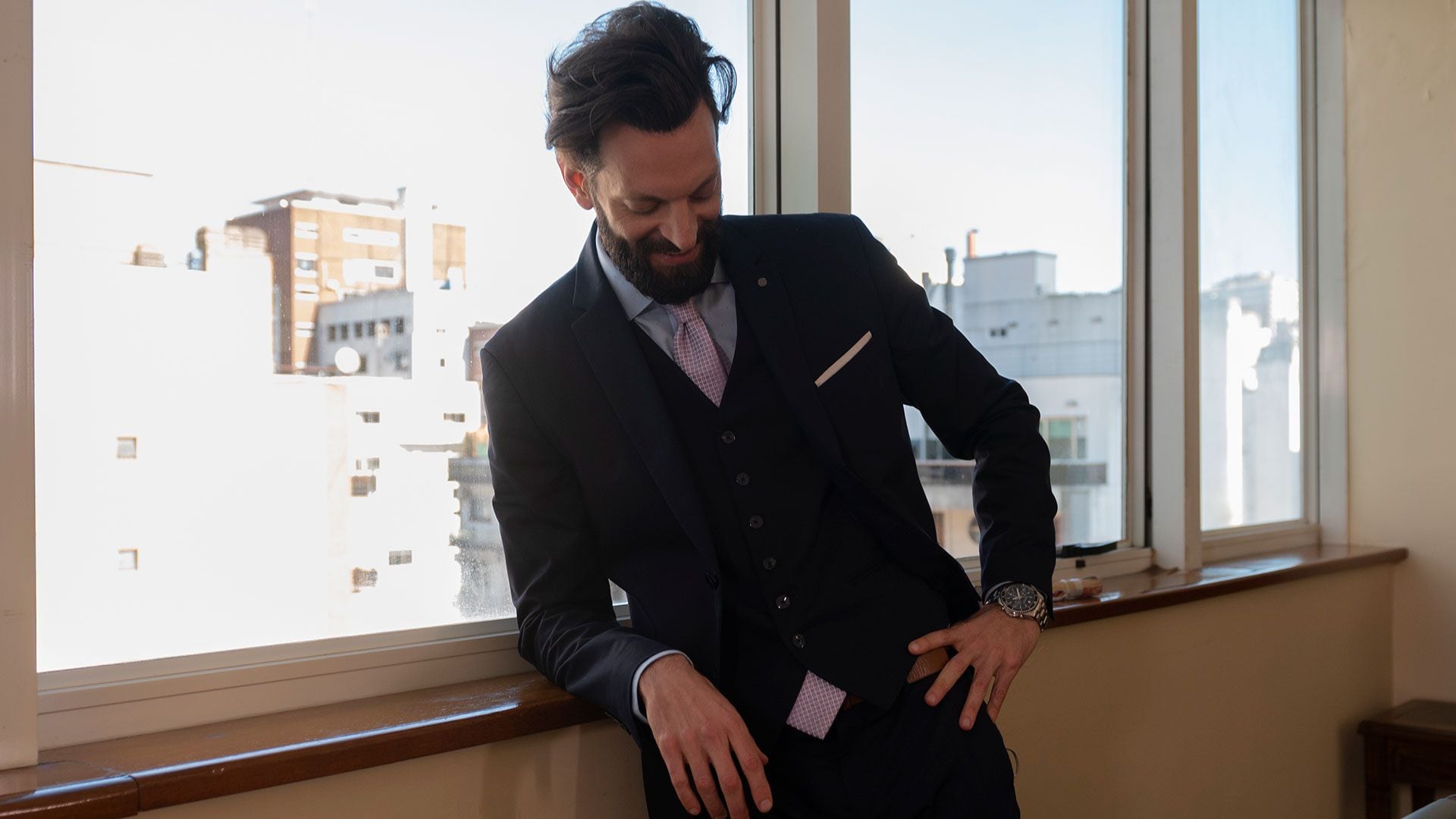
— And what would it be for Cristina Kirchner?
“For the Vice President, first I think it will be a very hard blow to her ego. For the actions that are being taken with the changes of cabinet, in the province of Buenos Aires and in the national government, and for the letter he wrote. I believe that if she cannot reverse the situation in some places such as in the province of Buenos Aires, as in some provinces that are important to her, I think that the first diagnosis will be a serious blow to her ego. Because it seems to me that now she feels that she is taking the reins again and that she has to do what she says and if they don't work out, obviously, what she is like, she is going to blame Alberto Fernández, but internally it will be a hard blow to her ego.
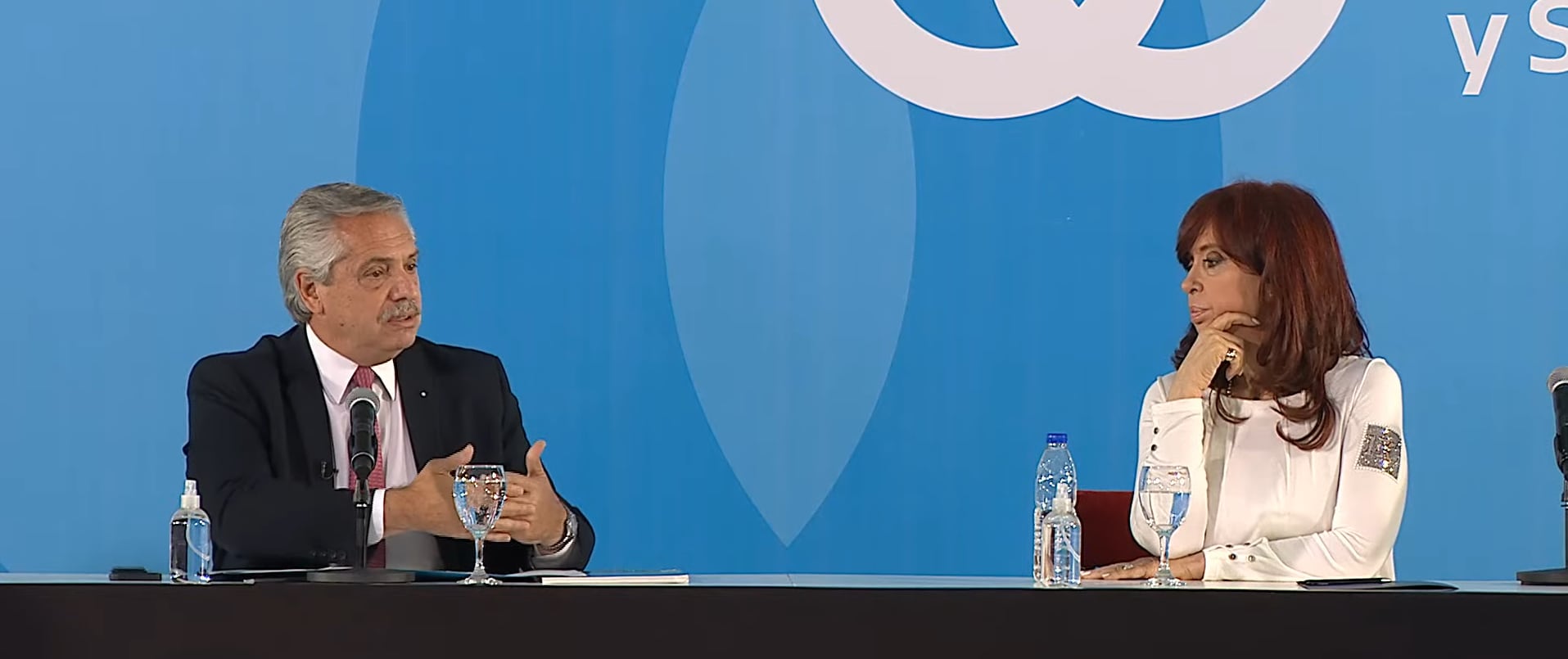
— How do you see the opposition? Who do you see as the most important opponent of Juntos? If we have to vote tomorrow for president, who do you think is the candidate?
“It seems to me that what the opposition has shown in these elections is that, regardless of their inmates or their dislikes or their bad faces with each other, they go in bloc. And that situation gives him the possibility that if November 14 does well, he can continue to grow by 2023. Perhaps it is obvious to say that Horacio Rodríguez Larreta may be a candidate, that María Eugenia Vidal could be another candidate, but I would not rule out Mauricio Macri, although many say that in 2023 he might play, again, as head of government in the city of Buenos Aires. Watch out for Patricia Bullrich, maybe we were here a lot in the City of Buenos Aires or in the province of Buenos Aires, but Bullrich has many followers in the rest of the country and I think she had a thorn left for not being a candidate in these elections. And then I think that radicalism is going to have a candidate by 2023 or will fight to have a candidate. I think that those names will lead to the opposition candidate for 2023.
— How did you live the pandemic and what happened in your life during the pandemic?
“In a pandemic I was a father, so with that it is a world. It was very crazy, because at first I went to all the ultrasound scans, I saw everything and at one point it was cut off. I couldn't get into any more ultrasound, I walked her to the door, the typical 4D ultrasound that everyone has just after birth and you see practically the perfect face you couldn't do, go to the sanatorium alone, live it in solitude. I mean, it was Pia, Capri and me nothing else. You call me pandemic and the first thing that comes to mind is Capri.
Then yes, these situations of being locked up, that you couldn't believe. I remember when it was said that we were experiencing a pandemic, but also that we were also going to experience an economic pandemic, a health pandemic, an education pandemic and a mental health pandemic, and that's true. I remember that, at one point, I felt like a sense of anxiety, which was not my own, for me it was confinement. I can't find any other explanation.
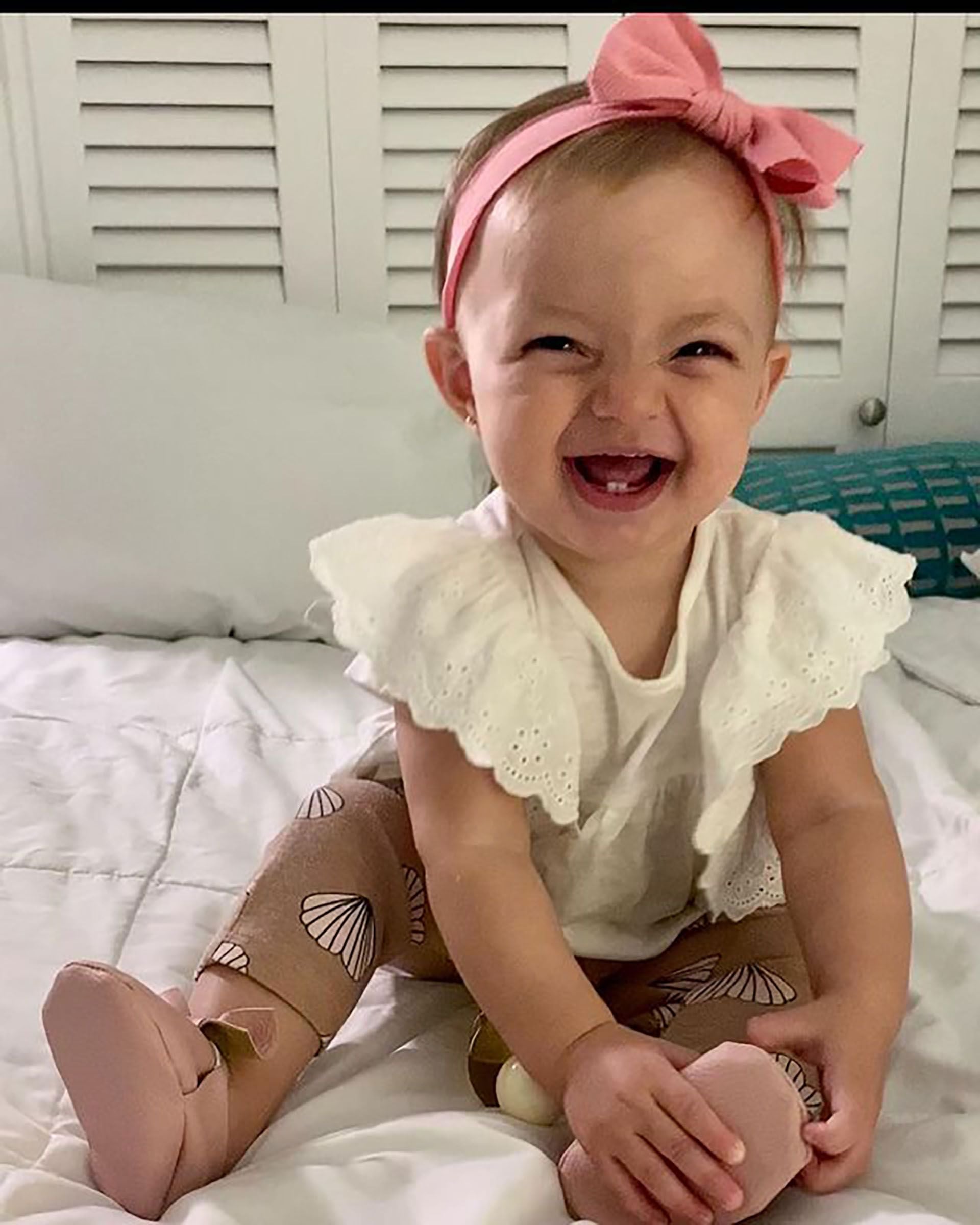
— What was it like to see Capri for the first time? What happened to him?
“I remember that when we arrived at the sanatorium, I kept walking, my throat closed, but I was thirsty. We went down together and they took Pia to the operating room and they took me to a little room to change, but I needed to drink water and I drank like three glasses. I was sitting there in a little room two by two waiting and at a moment they came looking for me and I walked in, looking down, and I sat on a stool, I grabbed Pia's hand, I saw the walls, I saw the clock and it was all very fast. Capri was born, they gave it to Pia and then they took it to neo to check and that's where I went. At one point she started crying and I remember that I started touching her head and she stopped crying, in fact, there is a photo taken by the midwife in which just when Capri started touching her head she kind of grabs my arm.
Besides, the first thing I said to Capri: “Look, you have to be from red eh, from Capri red.” And then I remember that I made a video call with Monica, the grandmother, Pia's mother, with the two brothers. I felt that I had to be with them first because I was the first granddaughter of the family, the first niece for them in that family. The boss there blew me up there, but hey, I did. And after that Pia started breastfeeding her.
“Can it be said that it changed his life?
“Obviously, yes. There is no day, and I think there is no time, that I can't imagine something about Capri. I imagine Capri now while we're doing the note. I imagine her when she is 4 years old, when she is 6, when she is 10, when she is a mother, when she is going to have her first daughter, when she is studying, when she travels, when I am eating with her. Every day, every hour, I have 360,000 images of different moments in Capri's life. And in this year and two months I had emotions that I never had in my life. For example, one day when I held her, she fell asleep in my chest and I had a feeling of pleasure that I don't think I had in my life, I'm never going to forget that moment. Maybe she fell asleep three million times, but I'm never going to forget that moment.
“If I could have a person who is no longer there again, I mean affections or athletes, someone who would one day be given the opportunity to return, who would it be?
“First, I don't want to lose anyone I have. I'd love to make a life contract with that. And then, I'm going to say the same thing I said before, I can choose 300,000 people, but I had things left to do with Edgardo Antoñana, we did really great things. I have this feeling that we were going to work together, but that his death cut that, it's something I regret. I would love to live a dinner again with Edgardo and my friends, with those stories he told. We may have been going to Corralón, while I tell you, I have the images of him when the night began to pass and a button was unbuttoned from his shirt and he saw the gold chain that he had with the medal and he said to me: “Cofla, cofla”. Nothing, I would love that, to live again a dinner with Edgardo, that there are no clocks and that the night holds what it has to offer.
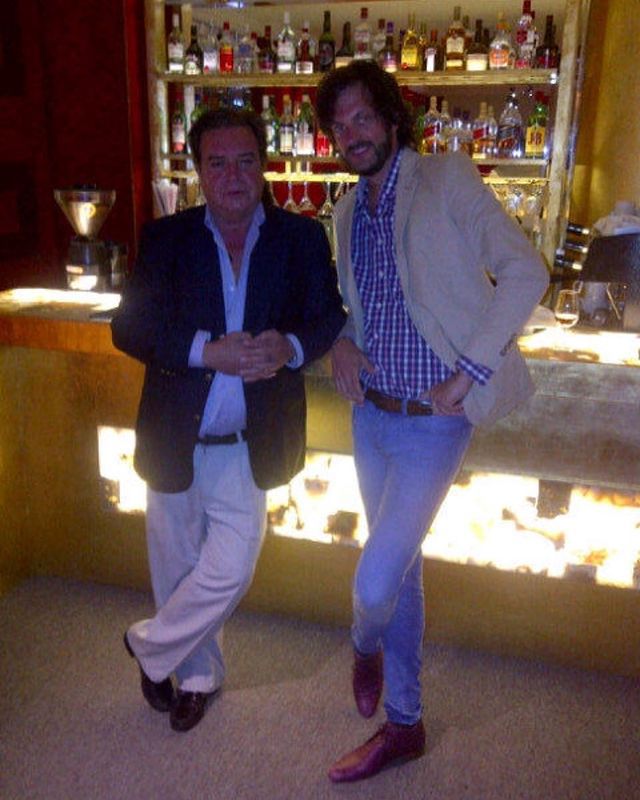
“I can't finish the interview without asking about Argentine football. How do you see it?
“It's a disaster and I think it's a disaster for the leaders. It's like what we talked about politicians, it's the same with Argentine football.
— Is politics or football worse?
“I think they are two policies. Politics use football because, for example, the AFA for government, for governments, I don't mean this particular government, it's just another ministry. It is as important as a Ministry. It is more important than some Ministries. And politics goes through football and football takes advantage of that many times. I think the football leadership is worse prepared than the political leadership. The leadership of football is used by politics and is often used to make profits. But Argentine football is really bad. And what we are experiencing now with the theme of: fans yes, no fans, vaccines yes, vaccines no, and the violence that we are experiencing with the barrabravas without the fans on the court is not going to end here. Next week, in a week, from today to a week we will have more acts of violence from barrabvas. And I'm not telling you because I have a piece of information, it's something that is known to happen.
And unfortunately there is politics, which often uses the barrabravas as political leaders, as a shock force, in turn, barrabrava and football are just another business unit.
Eighteen months without fans and a protocol could not be planned, that is a clear example that shows that the leadership is not ready.
To end the interview, I'm going to give you a tablet with three videos. You are going to play each one of them and answer what you feel when you see them. Ready?
PLAY 1. Farewell to the Varela de Synthesis Rifle
— We were the last ones to leave the channel and, practically, I was the last one to leave the channel, to empty the locker, everything. What's more, I think midnight misses a show like that. It was a resounding success. I saw things there and felt them in my body. It was a great show, it stopped being a newscast. I think that's why it meant so much to people and that maybe someone didn't like the news or the news, but at midnight I expected Tinelli to finish to see that Synthesis, because it was glorious. It was very, very fun, very good.
Everything I said I reaffirm. I could even tell you that I fell short. I'll tell you something, that was the last thing I did on the channel. Then I emptied the locker, I went home and since I had many messages I would have fallen asleep at three in the morning, and I remember that at one point my own scream raised because I had a cramp in a twin, I had it hard from the pain, I jumped into the bathroom to put my foot in the cold and then I went back to bed, it would have been twenty minutes, thirty minutes, an hour, I went back to sleep and I got another cramp in the other twin, the same thing happened to me, I couldn't take it anymore. The tension I had, the discharge of that whole farewell day were the cramps that caught me in my twins. But yes, Síntesis was a bomb. I enjoyed it very, very much.
PLAY 2. Mario Massaccesi (Driver-journalist)
- You left Channel 13, from Síntesis, because you wanted to be better and happier. The question is whether you did it, if you did it, if you were being as happy as you wanted to be. I send you a hug, I love you always, and it is always good that we continue to meet.
— Mario is writing books, giving talks about all that topic of letting go, of analyzing oneself. I say yes, I don't regret the decision I made at all. Anyway, I don't think one is happy or not, I think that happiness is a construction of one, of every day and desire to be happy. Obviously, every day I have anger, there are things that I don't like, that I want to change, but I'm doing this Infobae note, because I want to do it, because I enjoy looking at you and answering this question. Today I have to go in the afternoon to do the news with Eduardo Feimann, because I enjoy being with him, who for me, today, is the best news host on Argentine television. I enjoy in the morning, at 5 to ten, to tie my tie to go to the canal, and I am aware of that, of enjoying it, of being happy, of seeing my daughter, of learning, of my daughter teaching me.
There are days when it costs more work, there are days when there are quarrels, that change your axis, but you have to breathe, exhale and it is important that every day you get up and have something to do and from that, it is one step, and after that step another has to come to get better and to continue taking care of yourself and trying to move forward. So I don't regret the decision I made, but I'm still on the road. As Churchill used to say: “You have a path, you have a goal and you can't throw stones at every dog that barks at you on that path, otherwise you'll never reach the goal.” So I'm on that road, walking forward, and surely there are a lot of dogs that are barking at me, but it's the dog's problem it's not my problem and I'm not going to throw any stones.
PLAY 3. Who do you identify with more: with the Rifle or with Juan Manuel?
— I am Juan Manuel Varela. Maybe when I have to introduce myself to someone or I have to write a WhatsApp message for information, it's easier to say that I'm the Varela Rifle, because that's how people identify me. But I'm Juan Manuel. The Rifle is the job, the kid that appears on TV, the kid who appears in the media. But I get up and fall asleep like Juan Manuel.
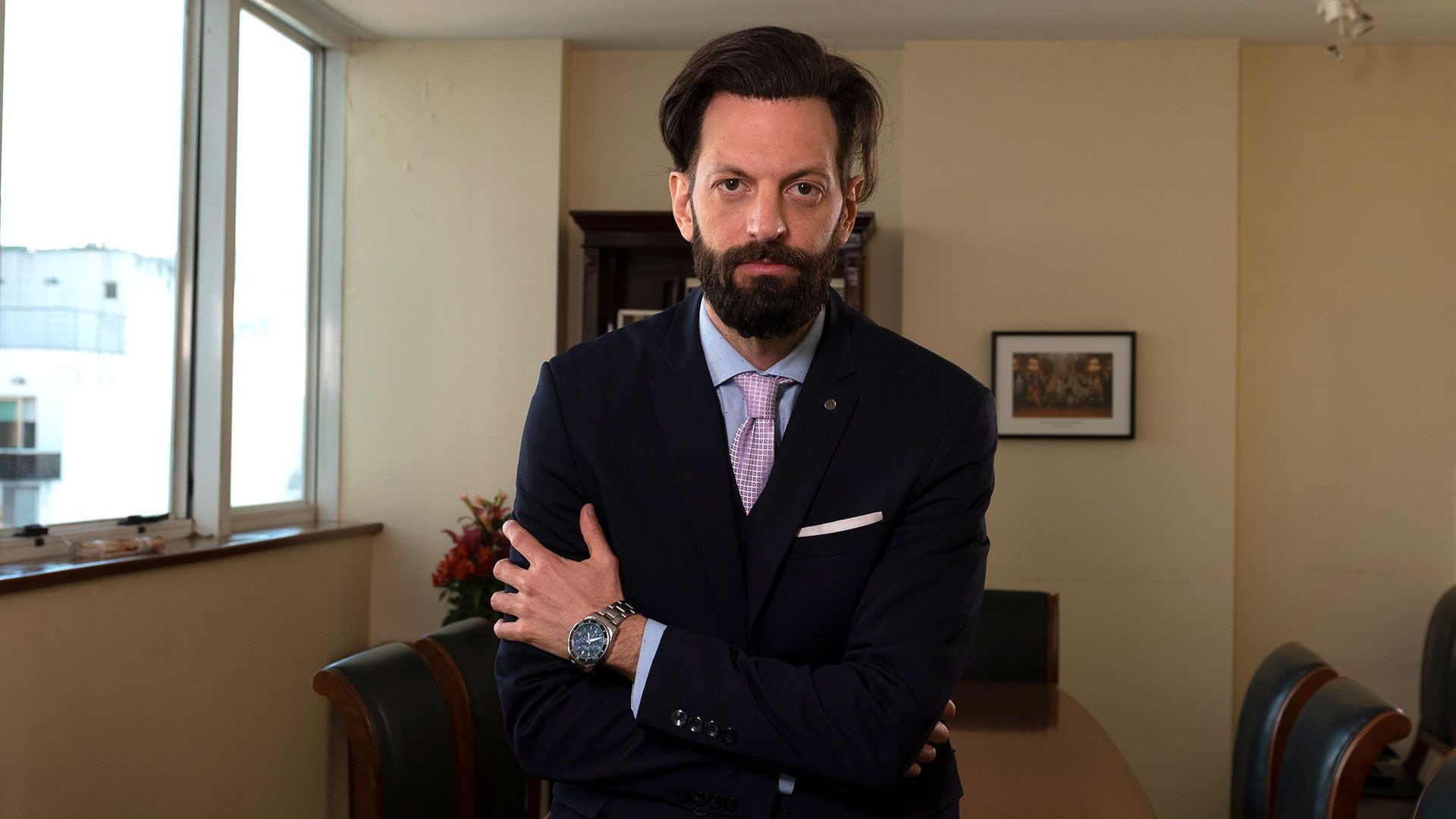
Video and photo: Cristian Gastín Taylor
KEEP READING:
Últimas Noticias
Debanhi Escobar: they secured the motel where she was found lifeless in a cistern
Members of the Specialized Prosecutor's Office in Nuevo León secured the Nueva Castilla Motel as part of the investigations into the case

The oldest person in the world died at the age of 119
Kane Tanaka lived in Japan. She was born six months earlier than George Orwell, the same year that the Wright brothers first flew, and Marie Curie became the first woman to win a Nobel Prize

Macabre find in CDMX: they left a body bagged and tied in a taxi
The body was left in the back seats of the car. It was covered with black bags and tied with industrial tape
The eagles of America will face Manchester City in a duel of legends. Here are the details
The top Mexican football champion will play a match with Pep Guardiola's squad in the Lone Star Cup

Why is it good to bring dogs out to know the world when they are puppies
A so-called protection against the spread of diseases threatens the integral development of dogs




